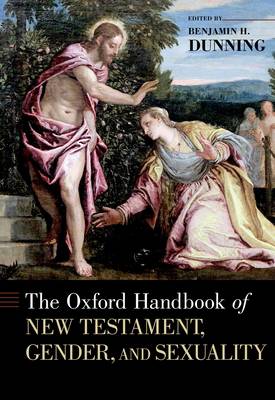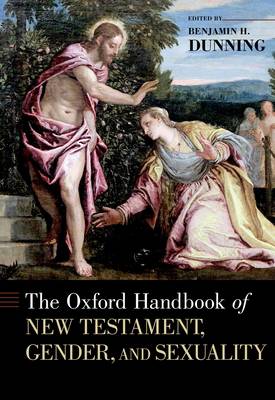
Bedankt voor het vertrouwen het afgelopen jaar! Om jou te bedanken bieden we GRATIS verzending (in België) aan op alles gedurende de hele maand januari.
- Afhalen na 1 uur in een winkel met voorraad
- In januari gratis thuislevering in België
- Ruim aanbod met 7 miljoen producten
Bedankt voor het vertrouwen het afgelopen jaar! Om jou te bedanken bieden we GRATIS verzending (in België) aan op alles gedurende de hele maand januari.
- Afhalen na 1 uur in een winkel met voorraad
- In januari gratis thuislevering in België
- Ruim aanbod met 7 miljoen producten
Zoeken
Omschrijving
Over several decades, scholarship in New Testament and early Christianity has drawn attention both to the ways in which ancient Mediterranean conceptions of embodiment, sexual difference, and desire were fundamentally different from modern ones and also to important lines of genealogical connection between the past and the present. The result is that the study of "gender" and "sexuality" in early Christianity has become an increasingly complex undertaking. This is a complexity produced not only by the intricacies of conflicting historical data, but also by historicizing approaches that query the very terms of analysis whereby we inquire into these questions in the first place. Yet at the same time, recent work on these topics has produced a rich and nuanced body of scholarly literature that has contributed substantially to our understanding of early Christian history and also proved relevant to ongoing theological and social debates. The Oxford Handbook of Gender and Sexuality in the New Testament provides a roadmap to this lively scholarly landscape, introducing both students and other scholars to the relevant problems, debates, and issues. Leading scholars in the field offer original contributions by way of synthesis, critical interrogation, and proposals for future questions, hypotheses, and research trajectories.
Specificaties
Betrokkenen
- Auteur(s):
- Uitgeverij:
Inhoud
- Aantal bladzijden:
- 736
- Taal:
- Engels
- Reeks:
Eigenschappen
- Productcode (EAN):
- 9780190213398
- Verschijningsdatum:
- 7/11/2019
- Uitvoering:
- Hardcover
- Formaat:
- Genaaid
- Afmetingen:
- 175 mm x 251 mm
- Gewicht:
- 1406 g

Alleen bij Standaard Boekhandel
+ 660 punten op je klantenkaart van Standaard Boekhandel
Beoordelingen
We publiceren alleen reviews die voldoen aan de voorwaarden voor reviews. Bekijk onze voorwaarden voor reviews.









